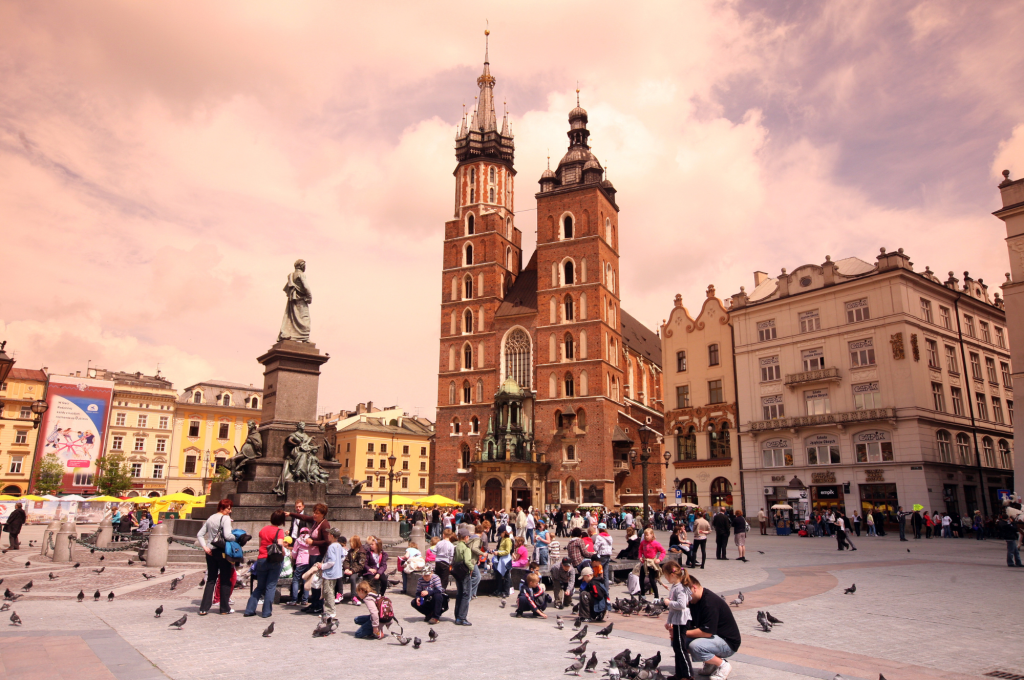
Exploring The Unique Work Culture In Spain: Traditions, Etiquette, and Balance
Spain has an interesting work culture. It blends historic traditions with a modern business method. If you want to succeed as an employee or business owner in Spain, it’s important to understand this unique mix. Spain puts a high value on relationships, not just business deals. People like to get to know you before diving into work talks. Spaniards also have a unique communication style and a refreshing view of work-life balance.
Understanding these aspects will help you build trust, work smoothly with colleagues, and truly enjoy your working life in Spain. Moreover, it will help you in adapting to the Spanish Workplace. Let’s talk about the major components that you need to know about the work culture in Spain.
Work Schedules: Fluidity & The Siesta
In Spain, the traditional 9-to-5 workday isn’t always the rule. Work schedules have a sense of flexibility that might surprise newbies. Understanding this unique rhythm is important for a smooth move into the Spanish workplace and adapting to Spanish work culture. Expect a different approach to working hours in Spain, changing your daily routine.
Flexible Time
Don’t be surprised by late starting times in the morning. The workday often runs later into the evening to compensate. This flexibility allows for personal errands or meetings during traditional working hours in Spain. However, it’s important to be punctual and reliable with your schedule, showing respect for Spanish business etiquette.
Spanish Siesta
The famous siesta, a noon break, is still a part of life in smaller Spanish towns. But, it’s becoming less popular in bustling cities like Madrid or Barcelona. Where it exists, the siesta can offer a chance to rest and recharge during the afternoon. Spanish siesta impacts productivity and boosts the workers for the rest of the day.

Late Dinners
In Spain, dinnertime happens much later than in many other places. These late meals are often a blend of both work and social time. It’s a chance to talk business in a relaxed setting, get to know colleagues on a more personal level, and experience unique Spanish negotiation styles. This focus on relationship building adds to the distinct work-life balance in Spain.
Relationship-Centric Approach: The Heart of Spanish Business
In Spain, relationships are the cornerstone upon which great business ventures are built. The concept of ‘personalismo’ places immense value on building trust and genuine rapport before diving headfirst into business transactions. This approach might feel refreshingly different from cultures where a strictly transactional mindset dominates.
Informal Networking
Informal interactions are important in Spanish business culture. Coffee breaks, lunches, or company social events offer a relaxed atmosphere for getting to know colleagues and possible partners on a personal level. Spaniards value friendly conversation and genuine interest in their lives outside the office walls. Embrace these chances to connect beyond spreadsheets and agendas.
Conversation Starters
Showing a true interest in family, sports (particularly football!), or local culture gives a terrific method to break the ice and develop connections. Spaniards are proud of their past, customs, and regional identities, and they like sharing their enthusiasm with others. While building rapport, it’s wise to steer clear of potentially sensitive issues, particularly in early interactions. Focus on comfortable, positive, and dynamic communication.
Patience and Trust Time
Cultivating strong relationships in Spanish business settings takes time and a sincere investment. Prioritize getting to know people on a personal level and showcasing your trustworthiness and reliability. Once a solid foundation of trust is formed, business discussions and collaborations will naturally run with greater ease, leading to more enduring and mutually beneficial partnerships.

Hierarchy, Formality, & Etiquette: Finding the Balance
While Spanish workplaces often keep a defined hierarchical structure, valuing seniority, and positions of power, this doesn’t translate to a rigid or unwelcoming atmosphere. Expect a mix of warmth and friendliness alongside traditional formalities. Understanding this balance is key to handling workplace interactions with confidence.
Respectful Titles
Initially, it’s wise and polite to address peers using professional titles and their surnames (Señor for men, Señora for women), followed by their last name. This shows respect for their position and experience. As relationships develop and greater familiarity is established, a transition to first names is normal. However, it’s always polite to allow your Spanish colleagues to take the lead and start this shift. You can read more here about the greeting culture in Spain.
Greetings Set the Tone
A firm handshake is the usual professional greeting in Spain, regardless of gender. For women, once a closer connection and level of comfort are established, the double-kiss greeting (air kisses, one on each cheek) may become appropriate. It’s best to watch how your Spanish colleagues greet each other and mirror their customs to avoid any awkwardness.
Bartering Business Cards
Exchanging business cards is a valued practice in Spain. Take a moment to examine the card you receive – this shows real interest and respect for the person. Always have your own business cards easily accessible and give them with both hands as a gesture of professionalism and courtesy. This small detail can make a significant positive impression on your Spanish business colleagues.
Communication Style in Spain: Direct, Expressive, & Passionate
– Straightforward and sincere: In Spanish business communication, expect directness and honesty. This can be refreshing for those accustomed to more indirect styles. Balance this directness with diplomacy to maintain positive relationships and show respect for Spanish business etiquette.
– Beyond words: Pay close attention to nonverbal cues, body language, gestures, and tone of voice. These add important context and nuance to conversations. Spaniards are often expressive and passionate in their communication style, adding energy to the interaction.
– Debates with purpose: Don’t be surprised by passionate discussions and healthy debates in the workplace. This is viewed as a way to explore different perspectives openly and find the best collaborative outcomes. Embrace these exchanges as part of the dynamic within Spanish work culture.
How to adapt to the Spanish Workplace?
Adapting to the Spanish workplace takes time and effort, but the benefits are immense. By embracing the language, culture, and unique rhythms of Spanish business life, you’ll open a world of professional and personal growth. Spanish work setting includes embracing the cultural nuances and making a conscious effort to integrate. Here are some important strategies for a smooth transition:
The Language Advantage
Learning Spanish, even at a basic level, gives you a major advantage. It shows respect for Spanish culture and makes communication with colleagues much easier. Consider enrolling in language classes, utilizing language learning apps, or finding a language swap partner for conversational practice.
Observing Your Workplace
Take cues from how your Spanish friends dress. This will give you a good sense of the specific expectations within your business. Remember, investing in a few key business wardrobe pieces will go a long way in ensuring you always look the part.
Projecting Confidence
Dressing properly in Spain isn’t just about fitting in; it’s about feeling confident and capable. When you look your best, it translates into your demeanor and relationships within the workplace. Embrace the chance to present a polished, self-assured image as you navigate the Spanish business world.
Work to live, not live to work
In Spain, work is seen as a way to support a rich and fulfilling personal life. This emphasis on work-life balance in Spain means prioritizing family, friends, and leisure interests outside of work. Also, Spaniards enjoy generous vacation allowances and numerous public holidays and vacations in Spain. They disconnect from work outside of standard working hours in Spain. This gives dedicated time to recharge, socialize, and enjoy life’s simple pleasures.
The Art of Negotiation: Patience and Relationship Building
Spanish negotiation styles vary from the fast-paced, “get down to business” approach seen in some cultures. In Spain, building trust and understanding takes priority over rushing to close a deal. Spaniards prefer to get to know possible business partners before diving into hard negotiations. Focus on building rapport through informal conversation and showing a genuine interest in them. Remember, they’re investing in you as a person, not just your plan.
Understanding the other side
Take time to truly understand the viewpoint of your Spanish counterparts. What are their objectives, concerns, and ultimate goals? Active listening and respectful questions will help you uncover this important information.
Mutual winning is preferred
Be prepared for compromise and flexibility within Spanish bargaining styles. Finding mutually helpful solutions is often valued over one party “winning” at all costs. Look for creative solutions that leave both sides feeling satisfied with the result.
Patience is important
Negotiations in Spain can take longer than you might be accustomed to. Patience is important – rushing the process might jeopardize the entire deal. Embrace the focus on building relationships as an investment in future successful partnerships.

15 Best Tips for Adapting to the Spanish Workplace
Spanish work culture takes a willingness to adapt and embrace the unique rhythms of professional life. Here are 15 essential tips to help you not only integrate but grow within a Spanish workplace:
- Embrace flexibility. Adapt to flexible plans while respecting deadlines.
- Invest in relationships. Prioritize informal interactions and connection building.
- Learn simple Spanish. Demonstrate cultural respect and ease conversation.
- Observe formal manners. Use titles initially, moving to first names later.
- Master the two-kiss welcome. Follow the lead of Spanish peers.
- Accept longer workdays. Enjoy the lively social life outside of work.
- Be prepared for direct criticism. Focus on the idea, not the delivery.
- Appreciate animated talks. See them as enthusiastic problem-solving.
- Respect the siesta (where appropriate). Adjust your workday properly.
- Enjoy generous trips. Fully engage yourself in Spanish life.
- Network strategically. Attend business events and social gatherings.
- Dress for success. Maintain a polished, professional look.
- Don’t rush the process. Focus on building long-term partnerships.
- Maintain an upbeat attitude. Be fluid and open-minded.
- Find a guide. Seek advice from experienced colleagues.
Frequently Asked Questions
What are the typical working hours in Spain, and how do they affect work-life balance?
In Spain, a normal workday starts a little late and ends around 7 pm. There is a long break for lunch in the afternoon, which usually lasts two hours. The Spanish believe in having a good balance between work and life, so this plan includes time for rest and family meals. But working long hours can make the workday longer, which can cut into personal time in the nights.
How is the professional hierarchy structured in Spanish workplaces?
There is usually a clear hierarchy at work in Spain, and choices are usually made at the top. Respect for leadership is important, but teams should also feel like families. Managers are easy to get in touch with, and while they make the final decisions, everyone’s input is respected. This shows a balance between formality and personal connection.
What are the key cultural norms to be aware of in Spanish business settings?
Personal ties and trust are very important in Spanish business culture. Meetings in person are better than talking on the phone, and a kiss is the standard way to greet someone. Building a rapport before discussing business issues is important, and punctuality, while valued, can be more flexible than in more rigid business cultures.
How does the concept of ‘siesta’ influence the workday in Spain?
The traditional “siesta,” a break in the early afternoon, is becoming less popular in cities and workplaces, but it still affects the longer lunch breaks that people in Spain take. Even though not all businesses are closed during siesta, the idea comes from the Spanish belief that you should take time to rest and eat during the day.
What should I expect in terms of communication and negotiation styles in Spanish businesses?
Communication in Spanish businesses is often direct but polite, with a large focus on non-verbal cues. Negotiations can be lengthy, as making a personal connection is considered as important as the business at hand. It’s normal to talk matters over meals, blending social and professional interactions.
How does the Spanish approach to holidays and vacations impact the work culture?
Spain is generous with holidays and vacation time, showing a strong emphasis on family and leisure. The abundance of public holidays, paired with a minimum of 22 vacation days, supports a work culture that values time off. This method fosters a relaxed atmosphere but requires planning to accommodate the frequent breaks in the business schedule.
Article Author – Gino Peters
Gino Peters is the Commercial Director at ThisWorks, with a rich history of nearly a decade in international payroll. Throughout his tenure, he has consistently kept abreast of evolving labor legislation, ensuring that ThisWorks remains at the forefront of industry knowledge. Beyond his vast expertise, Gino is deeply committed to advising and guiding clients and partners with precise insights. His leadership guarantees that all content and operations at ThisWorks meet the highest standards of clarity, accuracy, and compliance.
Follow him on Linkedin
Book a free consultation with Gino Peters






